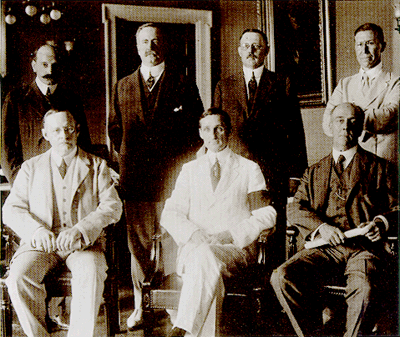Contradictory banking

Central banking in the United States is a self-contradiction. The Federal Reserve is antithetical to almost everything Americans claim to believe.
Americans say they want de-centralized government. They fought the Revolutionary War to separate from Britain's monarchy. They established the first de-centralized government in modern history. But over 130 years later, they established a central bank under that de-centralized government. Does that make any sense?
Americans say they believe in free markets. But central banking is about government control of the banking market.
Americans say they reject Soviet-style central planning. But the Federal Reserve appoints a handful of apparatchiks to dictate the money supply and the interest rate.
Americans say they want government that doesn't bend to the will of special interests. But it was Progressive-era bankers who agitated for the creation of a central bank, and wrote the legislation Congress passed on their behalf.
Americans say they believe in voluntary agreement, not government coercion. That's why those Progressive-era bankers claimed their primary goal was "Co-operation, not dominant centralization, of all banks". But a government mandate isn't necessary when people are cooperating.
The Federal Reserve is bad on principle. It contradicts the basic American values of freedom and cooperation by dictating some of our most essential economic variables.
The Federal Reserve is also bad in practice. It was created by bankers, for bankers, and continues to operate in their special benefit. Roughly a hundred years later, it bailed the banks out of financial difficulty, but not the smaller American companies and households that were in similar trouble. It also conducted "quantitative easing," which piped billions of dollars to banks, large enterprises, and wealthy elites, but not small firms or ordinary citizens. That effort has driven a huge increase in income inequality in the United States. Worse, it has fostered a great deal of resentment and political dysfunction.
Over a hundred years ago, bankers co-opted the machinery of government in their favor. It's about time we fixed what they broke.
